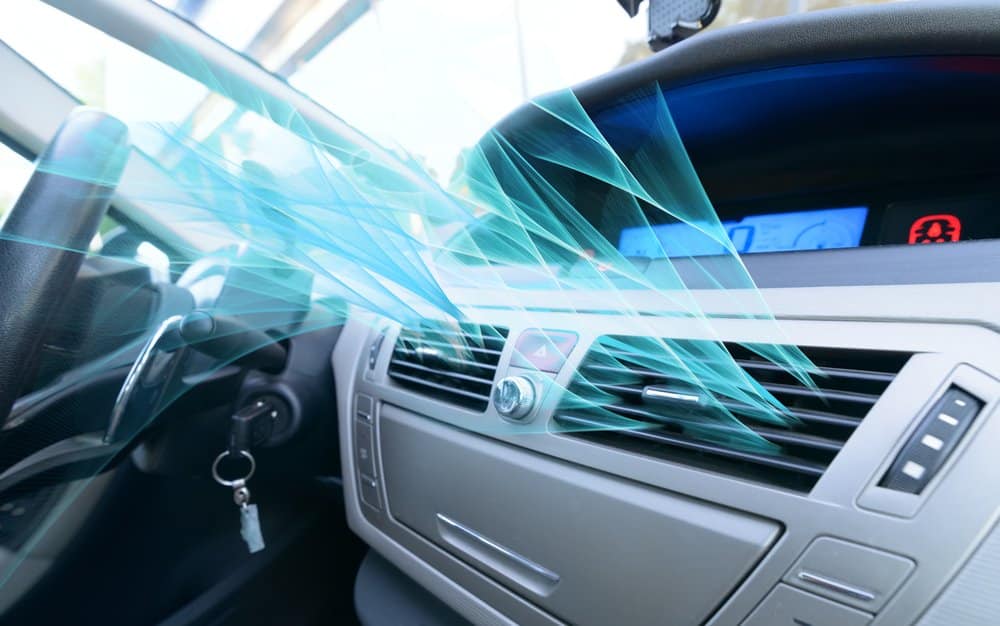Introduction
There's nothing more frustrating than dealing with a faulty air conditioning system on a sweltering summer day. It's not just about comfort—your vehicle's air conditioning (A/C) system plays a crucial role in defogging your windshield and cooling internal engine components. If you notice anything off about your A/C, you must get it checked promptly. This article will guide you through the top signs that your car's A/C needs attention.
The Role of A/C in Your Vehicle
Importance of A/C
Beyond keeping you cool on hot days, your car's A/C provides visibility by defogging and preventing your engine from overheating. It does more than you may realize.
A/C's Effect on Engine Performance
The A/C doesn't just keep the cabin cool; it also helps maintain optimal engine performance by preventing overheating. If the A/C system fails, it could put additional strain on the engine, leading to potential long-term issues.
Signs Your Car's A/C Needs Attention
Decreased Cooling Efficiency
If your A/C isn't cooling your car like it used to, it's a clear sign something is amiss. This could be due to a lack of refrigerant or other mechanical issues.
Unusual Noises
I hear strange sounds when you turn on the A/C. That's not a good sign. This could indicate a failing compressor or other problems within the system.
Leaks
Visible A/C fluid leaks in your vehicle are a red flag that your system needs attention. This could be a refrigerant leak, harming the environment and your vehicle.
Bad Odors
If turning on your A/C produces a foul smell, it could be a sign of a mouldy evaporator case or a dirty cabin filter.
Failure to Blow Air
If your A/C isn't blowing any air, this is a clear sign that something is wrong. It could be a sign of a failed blower motor or a problem with the electrical system.
Understanding the A/C System
Parts of the A/C System
To diagnose issues, it helps to understand the A/C system's components. These include the compressor, condenser, receiver-drier, expansion valve, and evaporator.
How the A/C Works
Understanding how the A/C works can help identify potential issues. The A/C system cools, purifies, and circulates air inside the vehicle's cabin.
Potential Causes of A/C Problems
Low Refrigerant
This is one of the most common causes of A/C problems. If the system is low on refrigerant, it won't cool the air effectively.
Electrical Problems
Electrical issues, such as a blown fuse or faulty wiring, can prevent the A/C from working correctly.
Broken Compressor
The compressor is the heart of your A/C system. If it fails, the entire system will not work.
Blocked/Clogged Condenser
The condenser dissipates heat absorbed from the car's interior. If it's blocked or clogged, it won't be able to do its job, leading to an ineffective A/C system.
The Importance of A/C Maintenance
Prevents More Serious Issues
Regular A/C maintenance can prevent minor issues from becoming more severe and costly problems.
Enhances Comfort
Keeping your A/C in top shape ensures a comfortable driving experience, particularly in the hot summer.
Increases Vehicle Resale Value
A functioning A/C system can significantly increase your vehicle's resale value.
When to Seek Professional Help
Knowing the signs is only the first step. When you identify any of these issues, seeking professional help is essential. Technicians can diagnose and fix A/C problems before escalating into more severe ones.
Conclusion
Your vehicle's A/C is more than a luxury—it's a necessary component contributing to your safety and overall performance. Don't ignore the signs if your A/C needs attention. Stay calm and keep your vehicle in the best shape possible by being proactive about your car's A/C maintenance.
FAQs
- Why isn't my car's A/C blowing cold air?
- This could be due to low refrigerant levels or a potential failure in components like the compressor or condenser.
- What should I do if my car's A/C makes a weird noise?
- Seek professional help. The noise could be a sign of a failing A/C component.
- How often should I service my car's A/C?
- It's recommended to service your car's A/C every two years, although this can vary based on the vehicle's make and model.
- Is it harmful to drive with a failing A/C system?
- While you might not be immediately endangered, a failing A/C can affect the comfort and the vehicle's overall performance. It can also lead to more significant issues if left unchecked.
- Can I fix my car's A/C myself?
- While some minor issues might be manageable, most A/C problems require professional diagnosis and repair.

